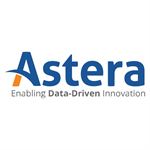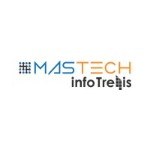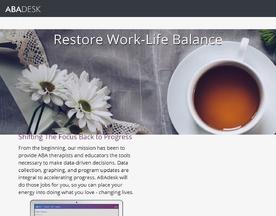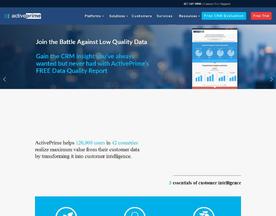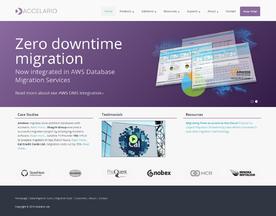Unleash the full potential of your data with the best data management software in the market. In this post, we will walk you through the top choices for cloud data management track, their features, benefits, and everything else you need to know to make an informed decision. Keep reading to discover the perfect software to transform your organization’s data management capabilities.
In this comprehensive guide, we will explore the best data management software available in the market. We will provide a list of our top 5 recommendations, delve into the key features and benefits of data management software, and examine factors to consider when choosing the right solution for your organization. We will also discuss potential problems, associated costs, use case examples, and address frequently asked questions. By the end of this post, you will have a clear understanding of which data management software is best suited for your needs, and you can begin your journey towards data-driven success.
Best Data Management Software List
Find more options and user reviews at Serchen Software Marketplace.

What is Data Management Software?
Data management software is a comprehensive solution designed to store, organize, protect, and process data within an organization. It enables businesses to handle vast amounts of structured and unstructured data effectively, ensuring data integrity, security, and accessibility. These cloud data management software solutions streamline data-related tasks, such as data ingestion, transformation, data warehousing, retrieval, and analysis, enabling organizations to make data-driven decisions, optimize operations, and drive innovation.
Benefits of Data Management Software
Improved Data Quality
Data management software enforces data validation rules, ensuring that data is accurate, consistent, and complete. This results in better decision-making, reduced errors, and increased operational efficiency.
Enhanced Data Security
Data management software offers robust security features, such as access control, encryption, and data masking, protecting sensitive enterprise data from unauthorized access and potential breaches.
Streamlined Data Integration
These software solutions facilitate seamless master data integration, consolidating data from multiple sources into a unified, easily accessible format.
Simplified Data Governance
Data management software enables organizations to establish and enforce data governance policies, ensuring compliance with industry regulations and internal standards.
Scalability and Flexibility
Data management software provides scalable architecture and flexible data storage options, allowing organizations to adapt to changing business needs and accommodate growing data volumes.
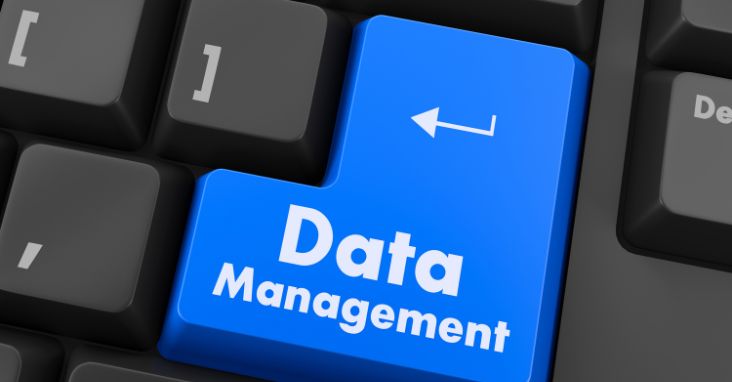
Data Management Software Key Features
Data Storage and Management
These solutions offer robust data storage and management capabilities, handling both structured and unstructured data, including text, images, videos, and more.
Data Processing
Data management software enables efficient data processing, supporting data ingestion, transformation, aggregation data visualization, and analysis.
Data Integration
These solutions facilitate seamless integration with various data sources, such as databases, data lakes, and data warehouses, consolidating data for easy access and advanced analysis further.
Data Security
Data management software provides advanced security features, including encryption, access control, and data masking, ensuring data privacy and protection.
Data Governance
These software solutions enable organizations to establish master data management and governance policies and procedures, promoting compliance, data quality, and accountability.

Factors to Consider When Choosing Data Management Software
Scalability
Consider the software’s ability to scale with your organization’s data growth, as well as its capacity to accommodate fluctuating data volumes.
Integration Capabilities
Ensure the software can seamlessly integrate with your existing systems and data sources, such as databases, data lakes, and data warehouses, consolidating data for easy access and further data analysis further.
Data Security
Evaluate the software’s security features, including encryption, access control, and data masking, to ensure data privacy and protection.
Customization and Ease of Use
Choose a data management software that offers a user-friendly interface and customization options, allowing you to tailor the solution to your organization’s specific needs.
Support and Training
Assess the level of customer support and training provided by the vendor to ensure a smooth implementation and ongoing success with the software.

Data Management Software Use Case Examples
Retail
A retail business can leverage data management software to analyze customer data, inventory levels, and sales patterns, optimizing stock management and enhancing customer experience.
Healthcare
Hospitals and clinics can use data management software to manage and analyze patient data, enabling better treatment plans, streamlined operations, and improved patient outcomes.
Finance
Banks and financial institutions can employ data management software to process and analyze large volumes of financial data, detecting fraudulent activities and ensuring regulatory compliance.
Manufacturing
Manufacturing companies can utilize data management software to optimize production processes, reduce waste, and enhance product quality by analyzing production data in real-time.
Marketing
Marketing agencies can leverage data management software to analyze customer behavior, preferences, and trends, enabling them to create targeted and effective marketing campaigns.

Potential Data Management Software Problems
Data Silos
Inadequate integration capabilities can lead to data silos, making it difficult to access and analyze data across the organization.
Complexity
Data management software can be complex and require significant time and effort to implement and maintain, potentially overwhelming your IT team.
Data Privacy and Compliance
Ensuring data privacy and compliance with industry regulations can be challenging, requiring ongoing monitoring and management.
Data Management Software Costs
The costs associated with data management software can vary significantly, depending on factors such as licensing fees, implementation, and maintenance. Additionally, organizations may incur expenses related to staff training, customization, and integration with existing systems. It is essential to carefully assess the total cost of ownership, taking into account both upfront and ongoing expenses.

How We Chose the Best Data Management Software
Selecting the right data management software for your organization can significantly impact operational efficiency, decision-making, and overall business growth. With a variety of options available in the market, it can be challenging to choose the best one for your needs.
To simplify the decision-making process, we’ve conducted extensive research and analysis to identify the top data management tools and software companies in the industry.
Our methodology for selecting the best data management tools and software vendors is based on several key factors. First, we considered the functionality and features offered by each software, including data storage, processing, integration, security, and governance capabilities.
Second, we evaluated the user interface and ease of use, as well as the level of customization and integration with other business systems such as ERP, CRM, and BI tools.
We analyzed customer reviews and feedback on Serchen, as well as G2, and Trustpilot, to gauge user satisfaction and the level of support provided by each vendor. Additionally, we took into account the pricing and affordability of each solution, as well as the level of customer service and support offered.
By considering these factors, we’ve identified the top data management software vendors that offer the most comprehensive, user-friendly, and cost-effective data management solutions for organizations looking to harness the power of their data.
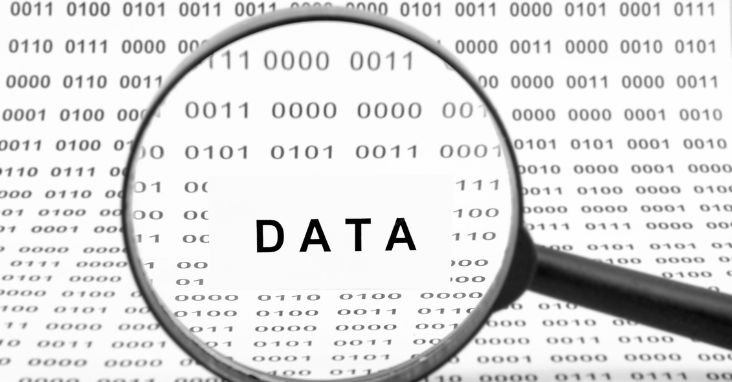
Top 5 Data Management Software Providers
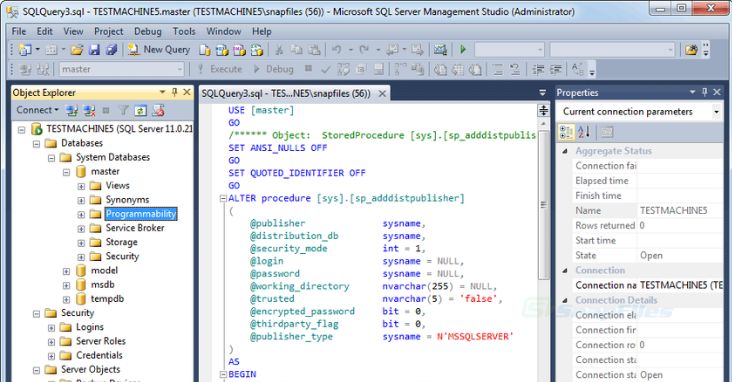
Microsoft SQL Server
Microsoft SQL Server is a popular relational database management system, known for its performance, security, and scalability. Launched in 1989, it has become a leading solution for businesses of all sizes, providing a comprehensive platform for data storage, processing, and analysis.
Pros:
Robust performance and scalability
Strong security features
Integration with Microsoft ecosystem
Advanced analytics and reporting capabilities
Cons:
Can be complex for new users
Licensing costs can be high for larger organizations
Best fit customers: Small to large businesses with a need for a powerful, secure, and scalable data management solution, particularly those already invested in the Microsoft ecosystem.
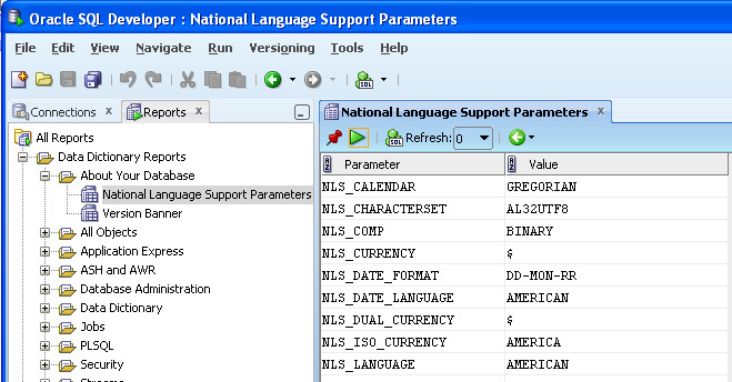
Oracle Database
Brief history: Oracle Database is a leading enterprise database management system developed by Oracle Corporation. Since its inception in 1979, it has been a trusted choice for organizations seeking a reliable, secure, and high-performing data management solution.
Pros:
Excellent performance and scalability
Advanced security features
Powerful analytics and reporting tools
Wide range of supported platforms
Cons:
Licensing costs can be high
Can be complex to set up and maintain
Best fit customers: Mid to large-sized organizations looking for a reliable, high-performance data management system with advanced analytics and security features.
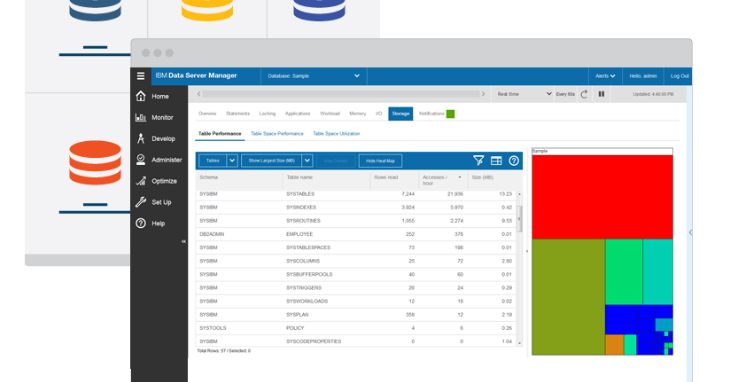
IBM Db2
IBM Db2 is a family of data management products from IBM, offering a flexible, secure, and scalable data warehouse solution for organizations of all sizes. Launched in 1983, Db2 has evolved to support various platforms, including on-premises, cloud, and hybrid environments.
Pros:
High performance and scalability
Advanced security features
Integration with IBM ecosystem
Supports various platforms and deployment options
Cons:
Can be complex to implement and manage
Licensing costs may be high for some organizations
Best fit customers: Small to large businesses looking for a flexible, secure, and high-performing data management solution, particularly those already using IBM products and services.
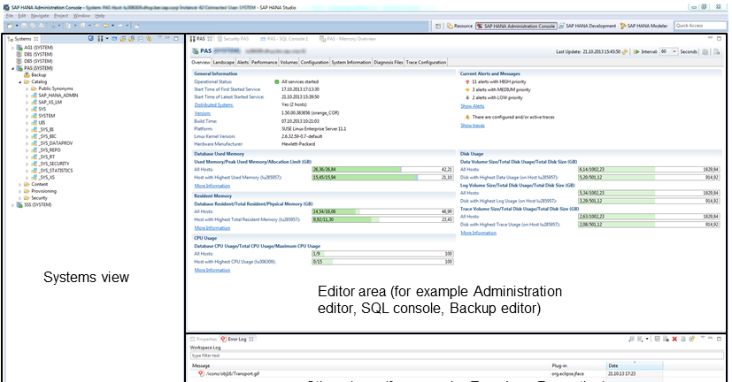
SAP HANA
SAP HANA is an in-memory database and application development platform developed by SAP. Launched in 2010, it is designed to provide real-time data processing, analytics, and application development capabilities for organizations seeking a unified data management solution.
Pros:
Exceptional performance with in-memory technology
Real-time analytics capabilities
Integration with SAP ecosystem
Supports various deployment options
Cons:
Can be expensive for smaller organizations
Complexity in setup and maintenance
Best fit customers: Mid to large-sized organizations, particularly those using SAP products, seeking a high-performance data management solution with real-time analytics capabilities.
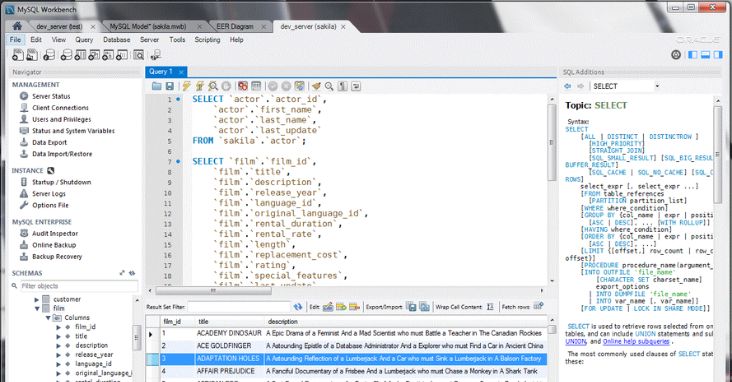
MySQL
MySQL is an open-source relational database management system developed by Oracle Corporation. Since its release in 1995, it has become one of the most popular open-source databases globally, known for its simplicity, reliability, and performance.
Pros:
Cost-effective open-source solution
Wide range of supported platforms
Large community and extensive documentation
Easy to set up and manage
Cons:
Limited advanced features compared to some competitors
Enterprise-level support can be costly
Best fit customers: Small to medium-sized businesses looking for a cost-effective, reliable, and easy-to-manage data management solution.

Data Management Software FAQ
What is the difference between data management systems and software and a database management system (DBMS)?
Data management software is a comprehensive solution that handles the storage, organization, processing, and analysis of data within an organization. A DBMS is a subset of data management software, focusing primarily on the storage, retrieval, and management of structured data in databases.
How does data management software help with data integration?
Data management software facilitates seamless data integration by consolidating data from multiple sources, such as databases, data lakes, and data warehouses, into a unified, easily accessible format. This enables organizations to analyze and process data more effectively. Some software is build atop the Google Cloud Platform making it more accessible to integration.
Can data management software handle unstructured data?
Yes, modern data management software can handle both structured and unstructured data, including text, images, videos, and more. This allows organizations to manage and analyze various data types for improved decision-making, business intelligence and insights.
Is data management software secure?
Data management software typically offers advanced security features, such as encryption, access control, and data masking, to protect sensitive data from unauthorized access and potential breaches.
What is data governance, and how does data management software help?
Data governance refers to the policies, procedures, and practices that ensure the proper handling of data within an organization. Data management software helps organizations establish and enforce data governance policies, promoting compliance, data quality, and accountability.
How can data management software improve decision-making?
By improving data quality and providing advanced data analytics and capabilities, data management software enables organizations to make more accurate, data-driven decisions, leading to better business outcomes.
What are the main challenges in implementing data management software?
Some of the main challenges in implementing data management software include data silos, complexity in setup and maintenance, ensuring data privacy and compliance, and managing costs associated with licensing, training, and support.
Can data management software be customized to fit my organization’s needs?
Many data management software solutions offer customization options, allowing you to tailor the solution to your organization’s specific needs. This may include custom data models, workflows, reports, and integrations with existing systems.
How do I choose the right data management software for my organization?
Consider factors such as scalability, integration capabilities, data security, customization and ease of use, and support and training when choosing the right data management software for your organization. Additionally, consult customer reviews and feedback on cloud data and platforms like Serchen to gauge user satisfaction and the level of support provided by each vendor.
What are the associated costs of using data management software?
Costs associated with data management software can vary, depending on factors such as licensing fees, implementation, and maintenance. Organizations may also incur expenses related to staff training, customization, and integration with existing systems. It is essential to carefully assess the total cost of ownership, taking into account both upfront and ongoing expenses.

Conclusion
Choosing the best data management software can greatly impact your organization’s ability to harness the power of data for improved decision-making, operational efficiency, and innovation. By considering factors such as scalability, integration capabilities, data security, and ease of use, you can select the best solution for your organization’s needs. Be sure to explore user reviews and feedback on platforms like Serchen to find even more software alternatives and make an informed decision.
Compare hundreds of Data Management Software in our Software Marketplace





